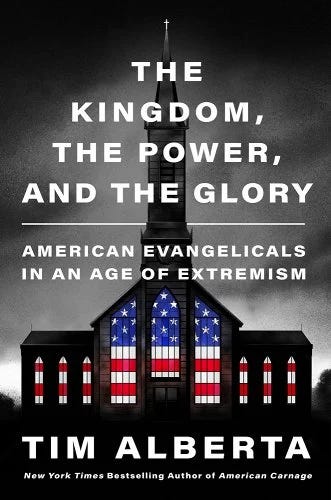Why Are Democrats Losing Non-White Voters?

Democrats have seen big drops in support among non-white voters since the last presidential election, according to new research.
Among the findings:
In 2020, Biden won non-whites by 50 points, but in recent polling, he's only leading Trump 12 points, 56-44.
Among Blacks, the Democrat lead has shrunk 20 points in three years.
Among Hispanics aged 18-29, the Democrat lead has shrunk nearly as much.
This news comes at the same time as:
a resurgence of the racist and absurd "Great Replacement Theory" on the right-wing of American media and politics. This canard claims that Democrats want to increase immigration because these non-white immigrants will vote Democrat and replace white people.
former President Donald Trump, a race-baiter and a xenophobe, became the presumptive Republican presidential nominee for the third time.
the national Republican Party eliminated its minority outreach program after the Trump campaign took control of the party.
How do we make sense of these seemingly opposing trends?
There are many factors I could talk about, but there's one in particular that I've been harping on for decades: religion. Ten years ago, I wrote a series of articles for the Christian Post noting that Republicans have a race problem (non-whites prefer Democrats) and Democrats have a religion problem (religious service attenders prefer Republicans).
At the time, I suspected the race gap or the religion gap would be the most important shift determining the future of each party's coalition. Turns out I was wrong about that. Since then, education has seen the biggest shift as non-college educated voters became more Republican and college graduates became more Democrat. But the race and religion gaps remain an important factor.
Democrats are more religiously diverse, including more people with no religion. This diversity makes it hard to appeal to deeply religious voters. At the same time, non-white Democrats have higher levels of religiosity than white Democrats.
This diverse coalition includes some who are anti-religion, believing that religion itself is a source of societal ills. Among Democrat voters, 33% have a negative view of religion, compared to 6% among Republicans, according to a Pew Research Center report released today. Democrat insiders say the anti-religion view is even more prominent among the consultants, pundits and donors who have oversized influence on the party relative to their numbers.
I'm oversimplifying a bit, but the more Democrats appear like a party of mostly areligious white liberals, the less they'll appeal to non-whites. I'm sharing this as a non-Democrat, but there are some Democrats, such as E.J. Dionne, Michael Wear, and Amy Sullivan, who have been attempting to bring attention to this issue for a long time as well.
The answer shouldn't be to make the Party unwelcoming to areligious white liberals. Whether you're a Democrat or not, we should all want Democrats to be successful in managing their religious diversity, in finding common ground among their differences, because it's a noble goal. It should be a goal for us all, including Republicans.
What Else We're Reading
The Bulwark: "The Wilt Chamberlain Conspiracy Theory and the ‘Presentism’ Trap"
Although the existence of 100-point-game trutherism feels too ridiculous to contemplate, it’s worth discussing because it originates in a kind of presentism—applying today’s attitudes, assumptions, and expectations to the past—that is all too common in other areas of our public discourse.
Texas Observer: "The Specter of Disinformation Haunts South By Southwest"
Based on the panels I attended, the prognosis for combating disinformation is grim, particularly with the advent of advanced machine learning, or “artificial intelligence.” Tools like ChatGPT may seem innocuous, but the technology is poised to shake loose the cornerstones of our democracy: elections and journalism. Against the broader techno-optimist grain of SXSW, a few panels of academics, journalists, technologists, and civil servants gave grave warnings about the threat of artificial intelligence being used by bad actors to sow division and chaos in an already fragile political environment. David Allan, an editorial director at CNN, encapsulated the two-mindedness around the artificial intelligence revolution, which he said offers “big promises and a specter of peril.”
TNR: “How Viktor Orbán Conquered the Heritage Foundation”
Enter the Heritage Foundation. While Heritage grew to prominence in the 1980s as a font of Reaganite policy, in recent years the organization has undergone a monumental shift in terms of both policy and priorities. Rather than persist in its stolid dedication to conservative values, Heritage has swung in a far more reactionary—and far more authoritarian—direction in recent years. Across the policy landscape, Heritage has become little more than an intellectual breeding ground for Trumpist ideas.
While much attention has understandably focused on Heritage’s so-called “Project 2025,” which provides a roadmap for Trump to seize as much power as he can, such a shift has extended to foreign policy. This has been seen most especially in Heritage leading the effort to gut funding for Ukraine. But it’s also evident in the way Heritage has endeavored to anchor its relations with Orbán, making Budapest once more America’s preferred partner in Europe—regardless of the cost.
You're Invited to Join the AVC Book Club!
The next book for the AVC Book Club will be Tim Alberta's The Kingdom, the Power, and the Glory: American Evangelicals in an Age of Extremism (affiliate link), and the author will join us for one of the meetings. We meet online Mondays, 8pm eastern. We'll start with the prologue and Chapter 1 on Monday, March 18.
Tell Your Pastor!
Do you know a Christian pastor or ministry leader who has experienced political and cultural divisions in their church and community? Are they concerned about increasing polarization in an election year? AVC has a new project especially for them!
J29 Coalition will help pastors and ministry leaders disciple their congregations through our current challenges by connecting them with experts on these topics and putting them in fellowship with other pastors experiencing the same challenges. Our first J29 Cohort starts in April and is limited to 50 pastors. We'll meet online throughout the year and at an expenses paid trip to Chicago in September. To learn more, sign up on our email list and join our online informational session on March 19 at 2pm Eastern.







